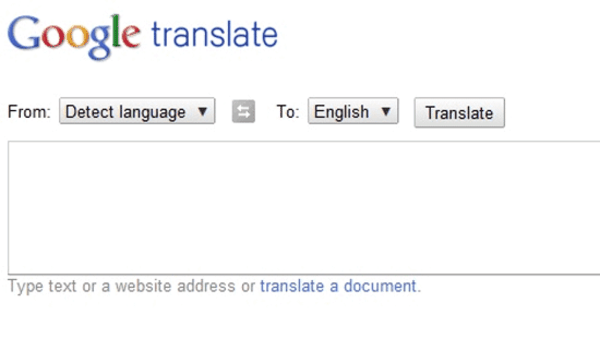Many people are fans of the free online translation tools; indeed, for some they may be a bit of a lifesaver: simply type your text into the box, choose your target language and Bob’s your uncle, you have an instant translation! Pop it on your website or on promotional literature and the world becomes your oyster, saving you money too. 
On the other hand, professional translations can be expensive and they take time to complete, and for good reason. Language is a complex system of signifiers designed to express meaning; it is not a simple series of calculations that can be performed accurately by a machine. In order for the meaning to be conveyed in a foreign language, such a tool would need to take context, syntax, grammar, tone, register and the target audience into account, and anyone who has used free online tools will know that we are not there yet.
Online tools can be great for the odd word or phrase, but then so can dictionaries! Often, a text translated online will be clumsy at best; in the worst cases, the end result is a jumble of words each unrelated to the next, gobbledygook that requires an understanding of the source language in order to decipher the meaning. If the aim is to understand a foreign website or a message from a friend, then maybe enough meaning can be gleaned from the translation to make it worth the effort.
If, however, the translation is to be used in a professional context, then a bodged job can have negative consequences. Language and the way it is used forms one of the criteria we use to unconsciously judge a speaker. Articulate expression inspires confidence and trust and in situations where communication is key, the language used will have a direct impact on the audience’s impressions of a message and its source.
Professional translators bring to each job a wealth of experience and knowledge, both of their source and target languages. Good translators will not mechanically translate each word as it comes in the source text; words are interpreted within the wider context of the sentence they are part of, the text they are in and the culture they are issued from and the one they want to address. Free online tools are unlikely to recognise cultural references and complex constructions, and therefore will not be able to identify the best way to express them in the target language. As things stand, they are a poor substitute for professional translations, and a false economy.
Wesley Lyons examines the pitfalls of automatic translator tools, writing here for World Translations Ltd

